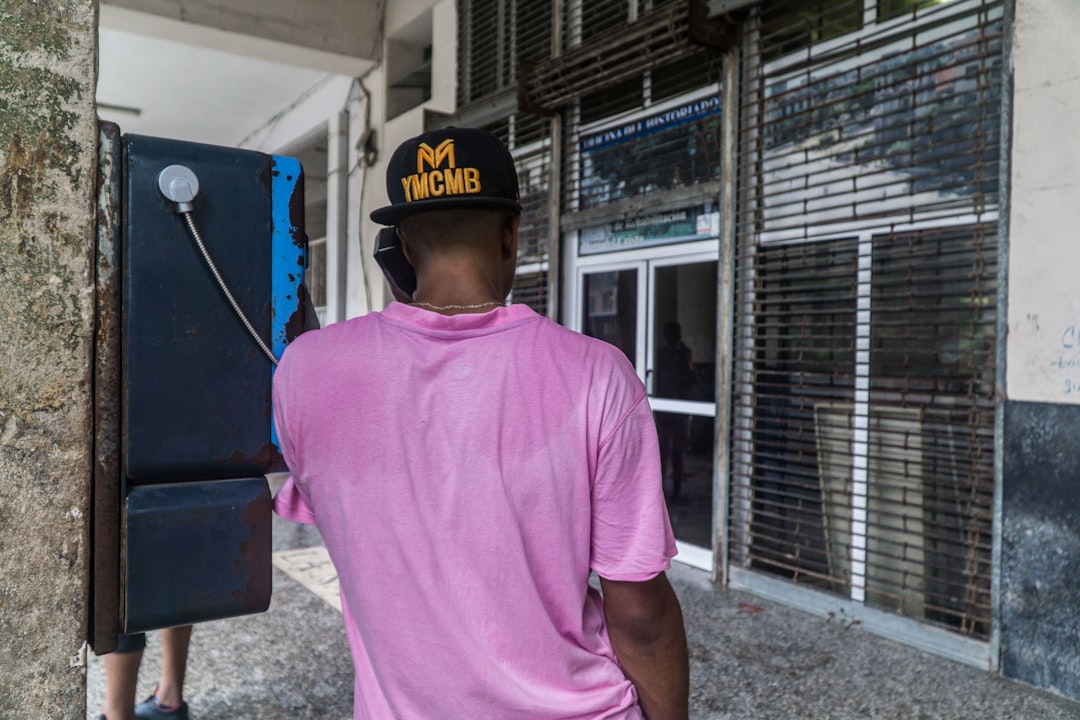In Delaware, including Wilmington, state and federal laws protect residents from unwanted calls and telemarketing scams. Unwanted call attorneys empower victims to take action against illegal callers under the Telephone Consumer Protection Act (TCPA) and Delaware's Unwanted Call Law. Education, community support, and legal guidance foster a culture of advocacy, empowering individuals to protect themselves and others from harassment. Specialized training for attorneys and strategic steps by victims are crucial for securing justice.
Wilmington residents deserve a safe and peaceful environment free from unwanted phone calls. This guide explores a comprehensive strategy to combat this growing issue, focusing on empowering victims and holding culprits accountable. From understanding Delaware’s stringent anti-unwanted call laws to building robust community support networks, we delve into essential steps. We highlight the critical role of educating residents and training legal professionals, including unwanted call attorneys in Delaware, to ensure effective advocacy. Let’s unite to silence these intrusions.
Understanding Unwanted Call Laws in Delaware

In the state of Delaware, including Wilmington, unwanted calls or telemarketing scams are regulated by both state and federal laws. The Telephone Consumer Protection Act (TCPA) at the federal level prohibits businesses from making automated or prerecorded phone calls to individuals unless they have given explicit consent. In Delaware, the Unwanted Call Law further reinforces these protections, ensuring residents are not harassed by unsolicited calls. These laws empower victims to take action against persistent and illegal callers.
If you’ve been a victim of unwanted calls, understanding your legal rights is the first step. Unwanted call attorneys in Delaware can provide guidance and representation if you choose to take legal action. They can help navigate the complex regulations and ensure that perpetrators are held accountable for their actions. By familiarizing yourself with these laws, you can better protect yourself and join the efforts to foster a culture of advocacy against unwanted calls in Wilmington.
Educating Wilmington Residents on Advocacy Rights

In Wilmington, fostering a culture of advocacy for unwanted call victims starts with educating residents about their rights and available resources. Many people are unaware that they have legal recourse when faced with persistent or harassing phone calls, commonly known as unwanted calls. By providing accessible information on local laws and regulations regarding telemarketing practices, residents can better understand their protection under Delaware state law.
Unwanted call attorneys in Delaware play a crucial role in empowering individuals to take action against violators. These legal professionals offer guidance on how to document incidents, file complaints with relevant authorities, and pursue legal options if necessary. Through workshops, community forums, and easily digestible online resources, Wilmington residents can gain the knowledge needed to protect themselves and support others who may be experiencing similar unwanted call scenarios.
Building Community Support Networks for Victims

Building a strong community support network is essential for fostering a culture of advocacy for unwanted call victims in Wilmington, DE. This involves creating safe spaces where individuals who have experienced unwanted phone calls can share their stories and connect with others who understand their plight. Local support groups, led by unwanted call attorneys or community leaders, can provide emotional support, practical advice, and resources to help victims cope and recover. Social media platforms and online forums dedicated to this cause can also facilitate connections and raise awareness about the issue.
Community organizations, schools, places of worship, and businesses can play a crucial role in this effort by hosting informational sessions, workshops, or campaigns that educate the public about unwanted calls and promote empathy. Collaborating with unwanted call attorneys from Delaware can help organize these events, provide expert insights, and connect victims with legal assistance if needed. By fostering a culture of care and solidarity, Wilmington can create an environment where victims feel empowered to speak up and supported in their journey towards justice and peace.
Training Unwanted Call Attorneys to Effectively Represent Clients

In Wilmington, unwanted call attorneys play a pivotal role in advocating for victims and ensuring justice. To maximize their impact, these attorneys require specialized training to navigate the complexities of unwanted calls laws in Delaware. This includes understanding federal regulations like TCPA (Telecommunications Consumer Protection Act) and state-specific guidelines.
Workshops and continuing legal education programs can equip unwanted call attorneys with strategies to effectively represent clients. They should be adept at gathering evidence, such as call records and caller identification data, to strengthen cases. Additionally, training in settlement negotiations and litigation tactics enables them to secure favorable outcomes for victims, whether through monetary compensation or other forms of relief, ultimately fostering a safer and more respectful communication environment in Delaware.
Implementing Strategies for Successful Legal Action

When navigating the complexities of unwanted calls, individuals in Wilmington, Delaware, who have been victims of persistent phone harassment should not hesitate to seek legal counsel from experienced unwanted call attorneys in the state. Legal action can be a powerful tool to deter such behavior and hold perpetrators accountable.
To ensure success, it is crucial to employ strategic approaches. This may include gathering comprehensive evidence of the calls, documenting their impact, and promptly reporting the issue to law enforcement. Retaining an attorney specialized in telecommunications law can provide victims with guidance tailored to Delaware’s legal framework, increasing the likelihood of a favorable outcome and delivering justice for those affected by unwanted phone calls.






